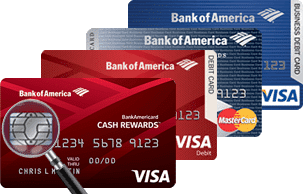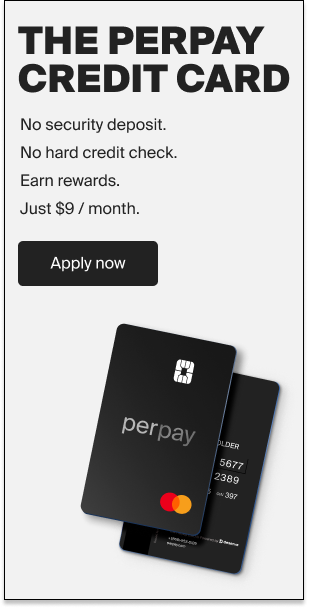Chip Cards Are More Secure – Brief Study in 2022
Table of Contents
Chip Cards Are More Secure – A Brief Study in 2022
Chip cards are replacing traditional cards to ensure data security. Open your wallet and take a look at your credit cards and debit cards. Chances are high that at least a couple of your cards now feature EMV, otherwise known as PIN-and-Chip, technology. These chip cards are only going to become more and more common in the future.
So if you do not already understand how these cards work to make your credit cards and debit cards more secure here is some helpful information. This article will briefly speak on the types of chip cards and their importance.
The Purpose of Chip Cards
Chip cards are indeed more secure and better equipped to reduce credit card fraud than cards that feature the much more antiquated magnetic stripe technology with which you are probably most familiar. EMV cards (an abbreviation of Europay, Mastercard, and VISA) feature a newer type of credit card technology which makes it harder for thieves to use your account information for fraudulent charges. The new smart cards utilize a computer chip to both encrypt and store your account information.
Of course, keep in mind that this “new” technology is not so new after all. It is only new to the United States. EMV cards have been widely used throughout Europe for many years.
Each time your EMV card is used a unique transaction code is created, a transaction code that fraudsters cannot turn around and reuse for future purchases. Comparatively, magnetic stripe cards store fixed data which can easily be stolen and then reused over and over again for unauthorized purchases. EMV technology certainly is not foolproof (especially not the hybrid cards magnetic stripe/chip cards which many US card issuers are currently distributing to customers) but it is certainly a step in the right direction.
How Do Chip Cards Work?
Credit cards will usually hold information like available balance, credit limits, transaction limits, and other user details in magnetic strips. Here the chip cards are embedded along with magnetic strips that update themselves with recent information.
The chip card is more like a wallet where users can hold money. In addition to that, they are intelligent enough to process money transactions by connecting with our bank accounts.
The cardholders will insert the chip cards into any sale terminals like an ATM, or POS (point of sales). There the terminals will read the user information and map with their account information. It proceeds with the transaction if the balance is sufficient after ensuring the user credentials. Once the transaction is approved after all these verifications, the terminal will prompt the users to ensure their authenticity either by the signature or unique PIN.
Why Choose Chip Cards?
Credit cards will usually hold information like available balance, credit limits, transaction limits, and other user details in magnetic strips. Update the current data in magnetic strips is quite complicated and this is where the chip cards get an upper hand over the traditional credit card methods.
- In the case of chip cards, along with magnetic strips silver or gold chips are also embedded in the cards, that are capable of storing recent transactions and financial information.
- These chip cards ensure security as they use encryption techniques to encode and decode the information.
Types of Chip Cards?
There are two types of chip cards in the market. They are chip-signature cards and chip-PIN cards. Though both the cards have many characteristics in common they differ in the authentication method. Both are working to support cashless transactions by transmitting the information between the terminals and banks through the chips. But the former depends on a signature for ensuring authenticity while the latter depends on a PIN.
| Chip-Signature Cards | Chip-PIN Cards | |
| Similarities | Uses silver or golden chips to transmit information chip chip | Chip-PIN cards uses embedded chips to transfer details. |
| Encryption techniques ensure security. | Unique PINs ensure high security. | |
| Differences | Uses Digital signature to complete the transaction. | Users have to enter the PIN to complete the transaction. |
The Liability Shift
The good news for you as a consumer is that you will not be held liable for fraudulent transactions on chip cards. In fact, except for small amounts, you legally cannot be. The Electronic Fund Transfer Act (enacted in 1978) and the Fair Credit Billing Act (enacted in 1974) have both protected you from liability for fraudulent credit card and debit card transactions for decades.
The Fair Credit Billing Act caps consumer responsibility for fraudulent credit card transactions at $50. The Electronic Funds Transfer Act does permit your responsibility for fraudulent debit card transactions to climb a bit higher – $500 to be exact unless you report the fraud within 2 days. However, most credit card issuers and banks will waive your liability entirely as long as you report the fraud and/or theft of your account information promptly. There is a catch to this protection, however. If you fail to report the fraud then you could potentially be personally liable for 100% of the fraudulent charges.
Formerly credit card issuers and banks generally absorbed the responsibility for fraudulent transactions themselves. A few years ago, however, a liability shift occurred. As of October 2015, the responsibility to bear the cost of fraudulent transactions will fall upon whichever party (the card issuer/bank or the merchant) is the least EMV compliant.
Here is a look at how liability for fraudulent transactions is now determined. If a merchant has a payment terminal that supports EMV (Chip Cards) technology but the card issuer/bank is still distributing the old magnetic swipe style cards then the liability for the transaction would fall upon the card issuer or bank. On the other hand, if a merchant has not upgraded their POS system to accept EMV-enabled credit and debit cards then the liability for fraudulent charges could fall back upon the merchant.
Consumers, at least for now, remain the most protected. Of course, fraud reduction attempts are ultimately in the best interest of the consumer as well. Reducing fraud lowers costs to credit card issuers and banks which can, in turn, translate into savings for consumers in the future as well.
Frequently Asked Questions
What are Chip Cards?
Chip cards are the usual creditor debit cards that are embedded with a metal chip that can hold and transmit information between the account and payment terminals. The metal chips can easily keep track of the updated information and ensure data security through encryptions.
Why are they more highly secured than other cards?
It is harder for attackers to hack information from chips than on magnetic strips. The chip encrypts the data and stores them which requires a unique signature or pin to unlock it.
3. Do all cards use chips these days?
Most of the cards these days are using EMV chips as they are highly secured even without PINs, still, the cards with magnetic stripes also exist in fewer numbers. The stores and ATMs are still accepting traditional cards.
Also Read:
Final Thoughts
Chip cards are the right replacement for traditional cards. If you are still using cards with magnetic stripes, you don’t have to panic the market is still accepting traditional cards as well. But why use the old one when you have something better? You can make use of chip cards if you are much more conscious of data breaches. The cards that have a chip embedded within them encrypt the data and make it hard for attackers to hack information.



